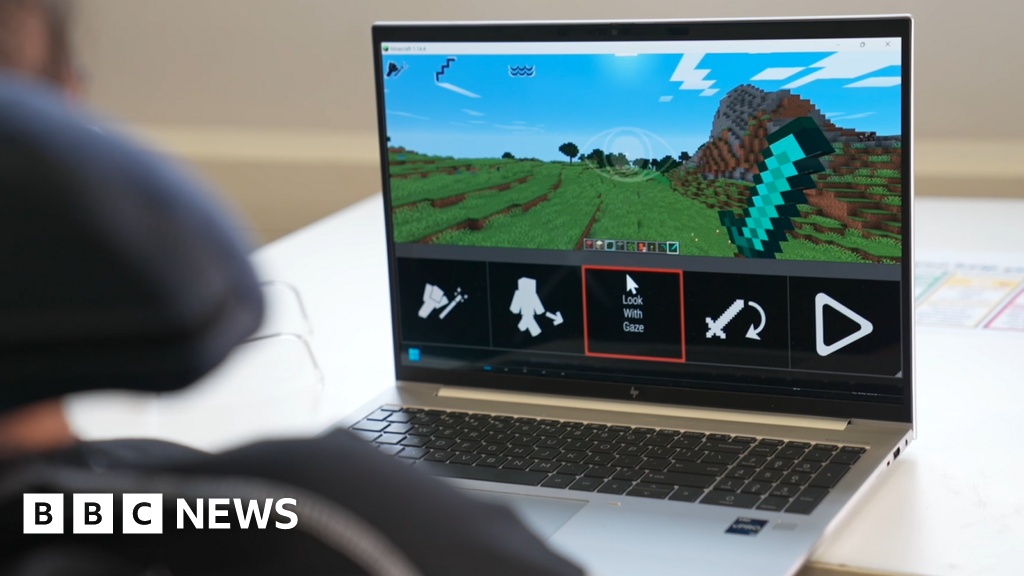
In the era of rapid technological advancement, a groundbreaking innovation is making waves for its potential to revolutionize the way disabled individuals interact with computers and video games. MotionInput, a cutting-edge software, is spearheading the movement toward “touchless computing,” a concept that allows users to control games and applications without the need for traditional input devices like mice or game controllers.
Developed by Professor Dean Mohamedally and a dedicated team of over 200 students at University College London, MotionInput has been in the making for the past four years. Its primary aim is to democratize technology, making digital experiences more accessible to all, irrespective of their physical abilities. The software operates on standard laptop equipment, utilizing the computer’s webcam to interpret users’ facial expressions and physical gestures as commands. This innovative approach enables users to customize their input methods according to their comfort and needs, transforming actions such as pulling a fish face or raising eyebrows into click functions.
Highlighting the significance of this technology, Professor Mohamedally stressed the concept of “equitable computing.” He noted how MotionInput empowers children and individuals with disabilities to interact with games and applications in a manner that was previously unattainable for many. The software’s adaptability and ease of use have been tested extensively, with institutions like the Richard Cloudesley School in London playing a significant role in identifying potential bugs or issues through real-world application and feedback.
One of the software’s avid users, Safiya, a student at Richard Cloudesley School, shared her excitement about the project. A fan of motion-controlled games on consoles like the now-discontinued Nintendo Wii, Safiya found MotionInput’s capabilities to enhance her gaming experience significantly. The software’s intuitive design allowed her to engage with games on a deeper level, making actions more accessible and enjoyable.
Paul Carter, a BBC Click journalist, had the opportunity to experience MotionInput firsthand. Testing the software on popular games such as Minecraft and Rocket League, as well as more complex titles including Doom and Forza Motorsport, Carter noted the learning curve involved in mastering the unique control methods. Despite initial challenges, the versatility and potential of MotionInput became evident, showcasing the immense possibilities that touchless computing holds for gaming and beyond.
The development and success of MotionInput are further supported by artificial intelligence (AI) technology from Intel. This AI software employs machine learning to recognize user gestures and expressions, correlating them with specific in-game actions. This collaboration points to a future where assistive technologies become more integrated into everyday devices, broadening access and participation.
Experts like Dr. Lynsay Shepherd, a senior lecturer in cybersecurity and human-computer interaction at Abertay University, emphasized the importance of making technology accessible, especially in the context of gaming. Highlighting the role of games in reducing social isolation and supporting mental health, Dr. Shepherd praised initiatives like MotionInput for offering disabled individuals opportunities to engage in gaming. She also acknowledged the efforts of charities and the gaming industry in developing accessible technologies but stressed the necessity for these solutions to be user-friendly and affordable.
While the current focus of MotionInput remains on gaming, its potential applications extend to sectors like healthcare, construction, and education. These touchless computing technologies could play a pivotal role in helping people maintain social connections and assisting in various work environments, reflecting our increasingly digitized society.
As MotionInput continues to gain traction, its future goals include commercializing its non-accessibility applications. However, the immediate focus remains on enhancing the gaming experience for users who face challenges with conventional control methods, marking a significant step forward in creating a more inclusive digital world.
Source





/cdn.vox-cdn.com/uploads/chorus_asset/file/25626313/247263_iphone_16_pro_AKrales_1062.jpg)
